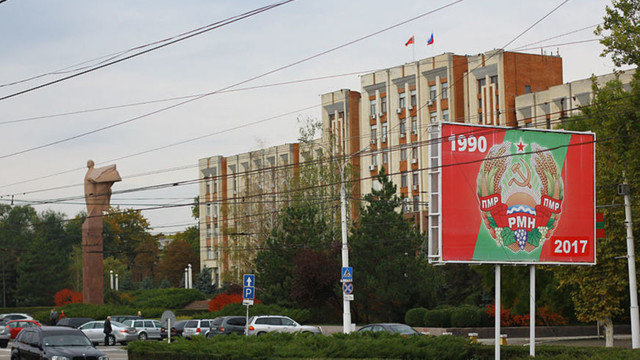On Friday morning, hot water supply was stopped in the cities of Dubăsari and Grigoriopol, and around 1:00 PM, the same measure was applied in Tiraspol, Tighina, Râbnița, and Sucleia. At the same time, the sale of liquefied gas was halted at the PECO stations in the Transnistrian region, which will be delivered exclusively to emergency and military services, reports the IPN correspondent from the left bank of the Nistru.
As a compensatory measure, the Dubăsari Hydroelectric Power Plant increased its energy production from 24 to 36 megawatts. This was possible due to an additional water discharge from the Novodnistrovsk Hydroelectric Power Plant. The station operates three hydroelectric generators, and in the coming days, the level of the Nistru under the dam will rise by one meter.
On October 2, Tiraspol instituted a drastic gas saving regime, which will last approximately until October 12-13. According to Serghei Obolonik, the so-called Minister of Economy of the region, household consumers, schools, and hospitals will not feel changes.
“After the end of this period, all consumers in Transnistria and the region’s needs will be ensured with gas in normal regime. I am referring to both industrial consumers and commercial deliveries, as well as the operation of the thermal energy sector under the conditions established for the start of the heating season,” Obolonik asserts.
The current statements differ considerably from his rhetoric in mid-September. Then, Obolonik assured that there was “a high degree of confidence” in the stability of gas deliveries, which ruled out a repeat of the January 2025 crisis. Moreover, he claimed that the delivery mechanism is “well established” and that the industry will operate normally.
“We look, with the optimism characteristic of Transnistria’s inhabitants, at the fact that gas deliveries will continue in the same regime as now. For this, a considerable effort will be necessary, including in cooperation with the Russian Federation, as well as with gas suppliers – both Hungarian and Moldovan,” Obolonik declared on September 12.
The contrast is evident also in the way the population is informed. In June, the authorities imposed restrictions without warning: on the night of June 6, methane sales were stopped, and subsequently, the hot water supply was also stopped. People lined up in queues, and the authorities did not provide official explanations until panic had engulfed the entire region. This time, however, the authorities announced in advance, to “avoid rumors and attempts to scare the population,” as Obolonik explained.
Details, HERE

